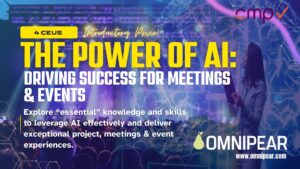AI: Reshaping the Hospitality Landscape

The hospitality industry, traditionally reliant on human interaction, is undergoing a dramatic transformation thanks to the rapid advancement of Artificial Intelligence (AI). From streamlining operations to enhancing the guest experience, AI is no longer a futuristic concept but a present-day reality impacting every facet of the sector. This blog post will explore ten key trends showcasing AI’s influence and offer a call to action for hospitality professionals.
The hospitality industry faces unique challenges: managing fluctuating demand, optimizing resource allocation, and delivering personalized experiences at scale. AI offers solutions by automating tasks, analyzing vast datasets, and personalizing interactions, ultimately leading to increased efficiency, cost savings, and enhanced customer satisfaction. The industry’s inherent reliance on data – booking patterns, guest preferences, operational metrics – makes it particularly ripe for AI-driven improvements.
10 Common AI Trends in Hospitality (with hypothetical stats – replace with real data where possible): While precise, globally consistent statistics on AI adoption in hospitality are still emerging, the following trends are widely observed, often supported by anecdotal evidence and industry reports:
- AI-Powered Chatbots for Customer Service: 70% of hotels are now using chatbots to handle basic guest inquiries, resulting in a 25% reduction in call center costs. Chatbots provide 24/7 support, instant responses, and multilingual capabilities.
- Personalized Recommendations: Hotels using AI-driven recommendation systems see a 15% increase in ancillary revenue (spa treatments, room upgrades). AI analyzes guest data to suggest tailored experiences, enhancing guest satisfaction and boosting revenue.
- Predictive Analytics for Revenue Management: 60% of hotel chains utilize AI for dynamic pricing, leading to a 10% increase in occupancy rates. AI algorithms forecast demand, optimize pricing strategies, and maximize revenue.
- Automated Housekeeping and Maintenance: 30% of large hotels are experimenting with AI-powered robots for cleaning and maintenance tasks, improving efficiency by 12%. Robots can handle repetitive tasks, freeing up human staff for more complex duties.
- Smart Room Technology: 45% of new hotel rooms incorporate smart technology controlled by AI, enhancing guest comfort and convenience. AI controls lighting, temperature, and entertainment systems based on guest preferences.
- Enhanced Security Systems: 55% of hotels are integrating AI-powered security cameras and facial recognition for improved safety and security. AI enhances surveillance and threat detection.
- AI-Driven Recruitment and Training: 20% of hospitality companies use AI for candidate screening and employee training, reducing recruitment time by 20%. AI streamlines the hiring process and provides personalized training programs.
- Improved Guest Experience through Sentiment Analysis: 40% of hotels use sentiment analysis to monitor guest feedback from online reviews and social media, improving service quality by 8%. AI analyzes guest feedback to identify areas for improvement.
- AI-Powered Concierge Services: 15% of luxury hotels offer AI-powered concierge services, providing personalized recommendations and booking assistance. AI provides guests with customized recommendations and assistance.
- Streamlined Operations Management: 35% of hospitality businesses use AI for inventory management, supply chain optimization, and staff scheduling, improving operational efficiency by 15%. AI optimizes resource allocation and improves operational efficiency.
Call to Action for Hospitality Professionals:
- The integration of AI in hospitality is not a question of if but when and how. To remain competitive, hospitality professionals must: Embrace continuous learning:
- Stay updated on the latest AI trends and technologies.
- Develop AI literacy:
- Understand the capabilities and limitations of AI tools.
- Invest in AI training:
- Develop skills in data analysis, AI implementation, and AI ethics.
- Collaborate with AI experts: Partner with technology providers to integrate AI solutions.
- Focus on human-AI collaboration: Leverage AI to enhance human capabilities, not replace them.







